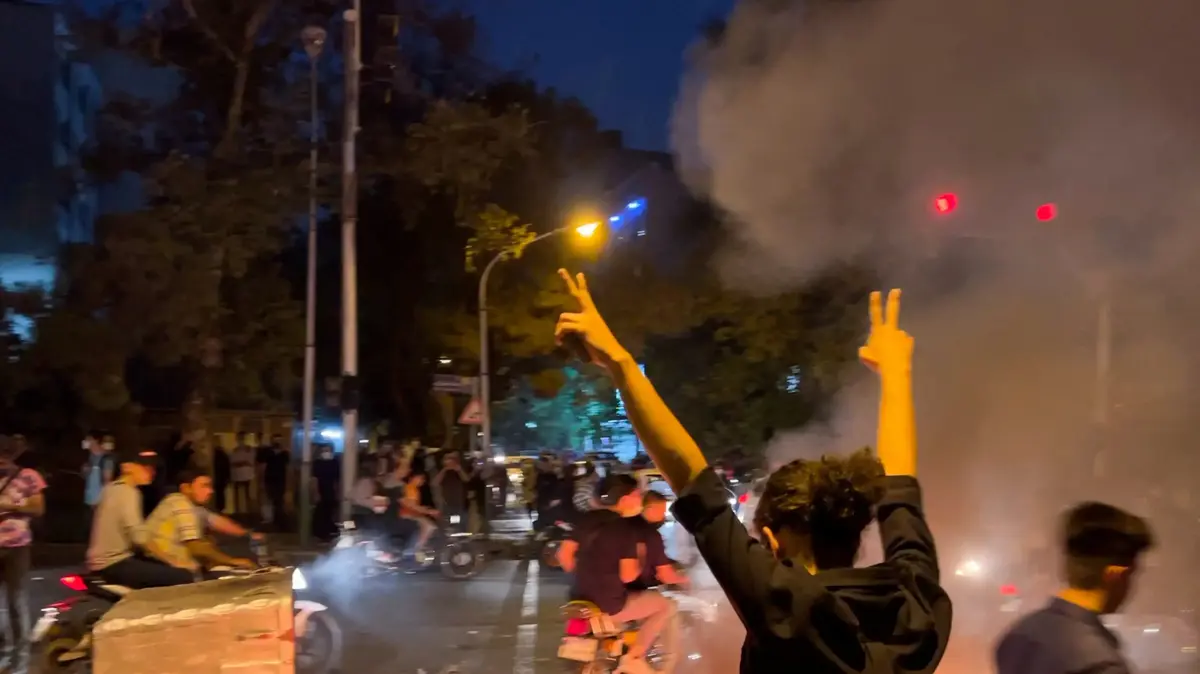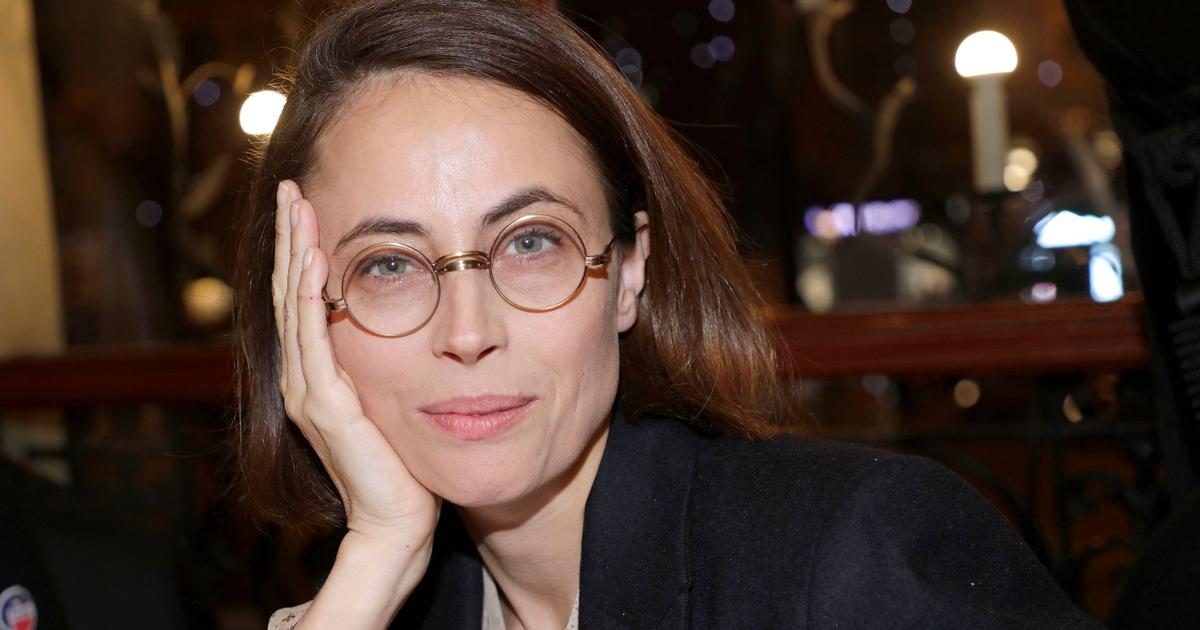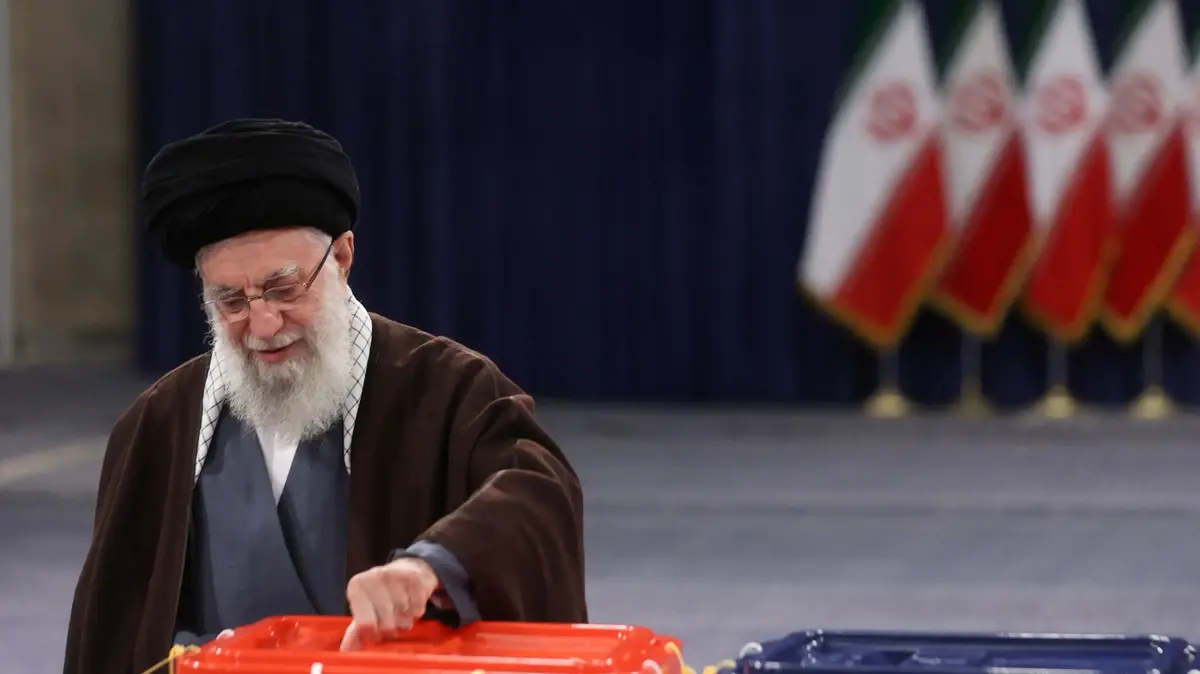Two months ago, the name of Mahsa Amini captured world attention and was the trigger for mass protests against the Iranian government.
This young Kurdish woman was arrested in Tehran by the morality police.
Her reason: misplaced the hijab on her head.
She died three days later due to a cerebral hemorrhage caused by the beatings of the agents, according to her family's complaint.
In response, thousands of women from all over the country, also from Rojhilat (Iranian Kurdistan), and from different parts of the world, occupied the streets shouting "
Jin, Jiyan, Azadî
" (Woman, Life and Freedom in the Kurdish language), cutting their hair and burning their veils in protest.
A thousand kilometers from Rojhelat, the women of Rojava (Syrian Kurdistan) also shout and raise their voices as Kurds and citizens who have waged a tough battle against the Islamic State (ISIS) and against the Syrian government, which denied them their autonomy for the fact of being women.
For 10 years, they have been testing a democratic confederalism, an autonomous system of government that has them as protagonists and which they call a "women's revolution."
1. Fatma
Fatma is a member of the Health Committee in the city of Hasaka (Syria). Mauricio Centurion
“I am part of the Health Committee in the Hasaka city canton,” says Fatma as an introduction.
Ask.
How did they live from here what happened in Rojhilat?
Response.
We condemn the murder of Jina [Jina was the Kurdish name for Mahsa Amini] by the Iranian state.
She was killed for being a woman and a Kurd.
The State must stop believing that killing us is going to take away our will to fight.
On the contrary, now children, old people, women and men are rising up in the streets of Iran.
For each one that they kill, we are going to raise thousands.
We support each other because we are all one, we have our rights and we are not going to accept that no one is murdered or tortured.
We will not remain silent.
We are women and our will is very strong, and we are going to fight until our last drop of blood;
we will be in the streets and in our squares.
Q.
How is the situation in Rojava regarding women's rights?
R.
In Rojava we say that the revolution that began on July 19, 2012 is the revolution of women, because from that day we began to take our rights, participating everywhere: in the economy, in defense, in every part of life.
That woman who used to be at home with her eyes closed and couldn't go out, she got up.
She, the one who only lived inside the house and under the order of the man, she no longer accepted him and got up.
Here we were able to achieve rights that the great States of the world could not offer their people.
All minorities, Arabs, Armenians, Assyrians, all have their rights.
Not only for the Kurds, what was achieved is for all the nations of the world, because it was all the peoples together who fought against the Islamic State and for our liberation.
We want to ask the countries of the world why they remain silent in the face of our deaths.
Is it because we are Kurdish?
Why the silence?
Why is there so much silence when one of our women or a child is killed by Turkish drones?
Why is the silence still?
2. Kocer Hussein
Kocer Husein is a neighbor of the Syrian city of Hasaka. Mauricio Centurion
Kocer Hussein is young, smiling and a member of an organization, as yet unnamed, that works to promote women's rights in the city of Hasaka, northeast Syria.
He stands in front of the camera and says: "I am the spokesperson for the education committee in an organization made up exclusively of women."
Q.
What do you think of what is happening in Iran after the assassination of Mahsa Amini?
R.
All the governments of the world are very afraid of the strength of women.
We Kurds know that we are the vanguard of the revolution.
Those who organize themselves, educate themselves, live with revolutionary ideas, and participate in social organization, develop free will, can participate in all parts, and play an important role for their people.
For this reason, we want to send our greetings and support to the Iranian women who are taking to the streets to take a stand against the chauvinistic mentality that wants to enslave us all the time.
Q.
Stories like Amini's, are they frequent in the history of Kurdish women?
R.
History is full of women's names, and many times we do not know them because the story is told by men.
But in Kurdistan we always remember Sakine Cansiz.
She resisted in jail, fought for freedom and equality, as well as for her identity.
We have reached a time when no one can ban our voice and no one can extinguish us.
In Iran, when Mahsa Amini was murdered, the excuse was his hair, which shows his culture, his way of life.
But, in reality, they use those prohibitions as a policy against all women who seek to be free.
In Iran they show it as a problem of morality or ethics, and that is interesting, because if morality and ethics existed, we would not be killed by the state.
Today we see in the free mountains of Kurdistan that freedom is not only related to hair and clothing, but something deeper.
The system also deceives us because it tells us that if we can show our hair and wear certain clothes, with that we will achieve freedom.
But that's a trap, a distraction.
Freedom is something bigger.
And we will not be free while there are oppressed women in the four parts of Kurdistan and in the world.
We will continue fighting until we achieve the freedom of all.
3. Nora Juzeni
Nora Juzeni is a member of the women's association Kongra Star, from the city of Amuda (Syria). Mauricio Centurion
Amuda is a city north of Rojava that borders the Turkish border.
Inside a small house, the neighbors meet to learn different self-defense techniques, including how to use a weapon in case of danger.
European countries say it is because of Islam, they create fear and prejudice against the entire Middle East, and in reality it is a fascist regime that is behind it.
Nora Juzeni is the
reverberî
, the name given in Rojava to those responsible for different places.
She is also a member of a feminist association called Kongra Star. “Amini was an uproar all over the world, she was a woman who sought to have a free life.
Because of bad, false traditions that try, in the name of religion, to go against us, she was murdered, ”she says.
Q.
How are the concepts of religion and revolution related in Rojava?
R.
European countries say it is because of Islam;
they create fear and prejudice against the entire Middle East, and in reality it is a fascist regime that is behind it.
The world seeks to stop the feminine force.
Some who gave us a lot of strength in our territory were Rêber Apo and Abdullah Öcalan.
Here, as women of the Kongra Star, we made statements, we marched, we cut our hair.
Islam for us means
selam
, peace, but it is used by a fascist regime against us.
They want to control their people and especially women.
Q.
In Rojava, how is the situation in relation to women's freedom?
A.
We still have old traditions that cause us problems.
We do not reach the point of being totally free.
But we also have a female army and one of the villages.
Here, we participate in political decisions every day.
We have education for all, to understand the importance of a more equal life.
4. Sucra Juzeni
Sucra Juzeni works in the Administration of the city of Hasaka. Mauricio Centurión
“It is unthinkable that a woman here is murdered because her hair can be seen.
We know that in Turkey, like the Iranian Islamic State, they target women, killing them.
But now it's different, because for every one they kill there are a thousand more on the street,” says Sucra Juzeni after cutting her hair in protest of the murder of Mahsa Amini.
“The example of our revolution in Rojava prompted people in Iran to rise up today.
It is something that cannot be accepted and we, from here, will be by the side of all those who fight in Rojhilat.
We are never going to accept a situation like this anywhere in the world.”
Q.
Before 2012, what was the situation of women in Rojava like?
R.
When the Syrian regime was in our territories, it did not happen that they arrested you for wearing the hijab badly, but there were other ways to cover us: they suffocated us within four walls, without rights, taking care of the children, like a machine that works at home.
That changed with the revolution: we began to occupy places, we began to get to know ourselves and to star in spaces.
We saw that we had rights, and that was very special for us in a context of war as difficult as the one we are living through.
We met and we knew we had strength.
We call on all the women of the world to look Mahsa Amini square in the eye and see all the oppression and violence she suffered, and also see all the women in Rojava who lived through it before the revolution.
We call everyone to go out to all the squares of the world until they are all free, because when this happens we will be able to say that our revolution has given its result.
And only when we are free can the people be freed.
5. Mahmoud rhyme
Rima Mahmud is a representative of a women's association in the city of Hasaka.
Mauricio Centurion
Rima Mahmud chooses to remove the kufiya that wraps around her hair and throws it on the ground for the photograph.
“Amini was not only killed because she had a little bit of her hair showing under her hijab.
We know well what the government of the Islamic State of Iran is like.
He uses Islam to implement a policy against us, because he wants to break the will of the free woman.
Protests were held all over the world.
Jin Jiyan, Azadî
was our response,” she declares.
"In Iran they are rising up against a mentality, against a government that covers their hair and their freedom, the Iranian state has a policy with the same principles and mentality as Daesh, which forces girls to cover themselves, but they are already rising up. in schools against dictatorial authoritarianism”.
Q.
What is the ultimate goal of these repressions?
R.
They want to break and repress the will of the free woman, but the response in all parts of the world has been the uprising and solidarity actions.
Men have also taken to the streets, that was hard for everyone: they saw that we no longer accept death, slavery.
Very soon they will also rise up in Turkey and other parts of the Middle East.
The history of the oppression against us is 5,000 years old, and we always resisted.
6. Pull
Hale is a neighbor of the Hasaka canton. Mauricio Centurión
“Iran wants to put us in a black bag because women, when they think about freedom, achieve the greatest force they have, and it is against this force that the States want to fight.
The woman is an essential part of the revolution,” Hale says, as she searches through her things for a poster with Amini's face on it.
“When we stand up here, we stand up for the women's revolution.
It is important to condemn every attack that exists against us.
And, especially, to condemn the States that are against our rights”.
Q.
What role does religion have for women in the Middle East?
A. A
large part of the population is Muslim.
What happens in countries like Iran is that they mix religion and politics for their interests.
When we got up, we also did so with that strength that religion, freedom, and resistance give us.
That is connected to each other in our territory.
Mahsa was murdered, mistreated, but the people took to the streets.
In Rojava the people also came out.
All of them are now Amini.
We can say that countries will never break our strength.
And that we are going to work and develop more.
Today, we know our strength, we take the pain outside and we will resist until the last drop of blood.
We will never forget those who died fighting.
7.Ayshe
Ayshe is in charge of organizing the women of her town, Amuda.Mauricio Centurión
“Whether or not that woman was a Muslim is not a reason that gives anyone permission to kill her.
We are also Muslims and everyone uses her hair in her own way and they don't kill her for it ”.
Ayshe says, before taking off her glasses and announcing: "I'm not going to talk much."
Q.
You can say what you want.
R.
In general, women continue to be oppressed, but a large percentage of us are liberated, we can go out the way we want and do the jobs on a par with men.
We have to resist until the end to achieve our rights and we hope that the rest of the world will support us.
You can follow PLANETA FUTURO on
,
and
, and subscribe
here
to our 'newsletter'
.



/cloudfront-eu-central-1.images.arcpublishing.com/prisa/AD2TMVZ5XQUDUGJNBTOYF4FIIA.jpg)


/cloudfront-eu-central-1.images.arcpublishing.com/prisa/RSDYMJQAS5HZZJNOQTAQ3E4FYI.jpg)


